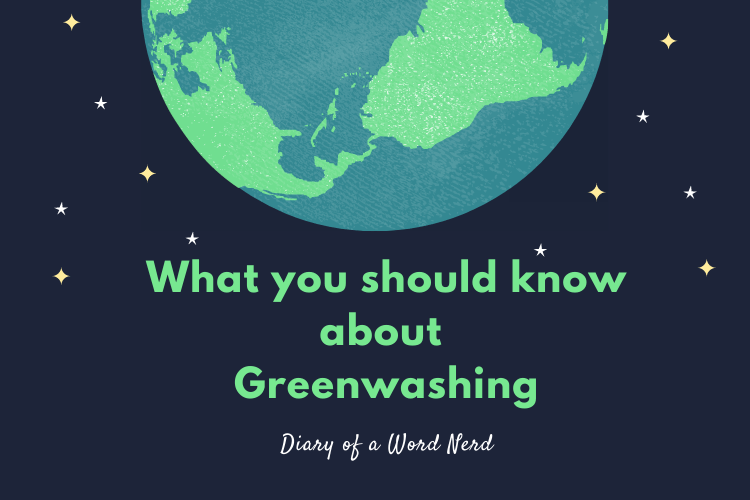With recent news about companies striving to “go green”, e.g. Hertz’s recent deal with Tesla to purchase 100,000 electric cars, I’ve been hearing the term “greenwashing” more often. Of course, the Word Nerd had to learn what’s up with greenwashing and how common it is.
Apparently, it’s pretty big.
Definition of Greenwashing
Greenwashing is just what you might expect: companies trying to brainwash us into believing their products or actions are “green.” According to Merriam-Webster, greenwashing is “expressions of environmentalist concerns especially as a cover for products, policies, or activities.” To further illustrate the term, Merriam shares a quote from Fortune magazine:
As money pours in, critics warn that greenwashing is becoming endemic, as companies spin their behavior to attract ESG investors’ dollars. —
Katherine Dunn, Fortune, 11 Oct. 2021
Here’s another explanation of greenwashing from the Corporate Finance Institute. Greenwashing happens when “companies spend time and money advertising and marketing that their goods or services are environmentally friendly when, in fact, they are not. In other words, greenwashing is the act of making false or misleading claims about the environmental benefits of a product, service, technology, etc.”
Kinds of greenwashing to watch out for
Not only does the Corporate Finance Institute explain greenwashing, it also outlines practices companies use to convince consumers they are acting in environmentally ways.
- Hidden Trade Off- A company might emphasize an environmental benefit over another problematic issue
- No proof- claims are not backed by data or third party certification
- Vague claims- companies make vague claims that lack specific details, e.g. a label of “all natural” or “recyclable” (just because it is recyclable doesn’t mean your community will accept it for recycling)
- False labels – companies will create false labels or certification to make a product look like it has been approved by a green screening process
- Irrelevant information- unrelated environmental issues are emphasized
- Lesser of two evils- claiming environmental benefit for a product or service when there isn’t one to begin with, e.g. organic cigarettes
- Fibbing – making claims that are false
What you can do to avoid being “greenwashed”
In a time when disinformation and misinformation run rampant, we must ask more questions. As with everything else, we need to seek reliable data and information about environmentally friendly claims. We also need to hold companies, individuals, and agencies accountable for their practices. Treehugger.com suggests looking for data, hard numbers, and comparisons to other products when considering a purchase. Consumers should also check if a brand is making sustainability a foundation of its business model. Most companies truly interested in the environment will make information readily available to the public via a website.
I must admit, in my desire to pursue more sustainable living habits, I have definitely been greenwashed. Now, when I see something is “recyclable” or that it has been “green certified”, I will look for more information about what that really means.
How about you? Have you been greenwashed?
Thanks for getting nerdy with me!




